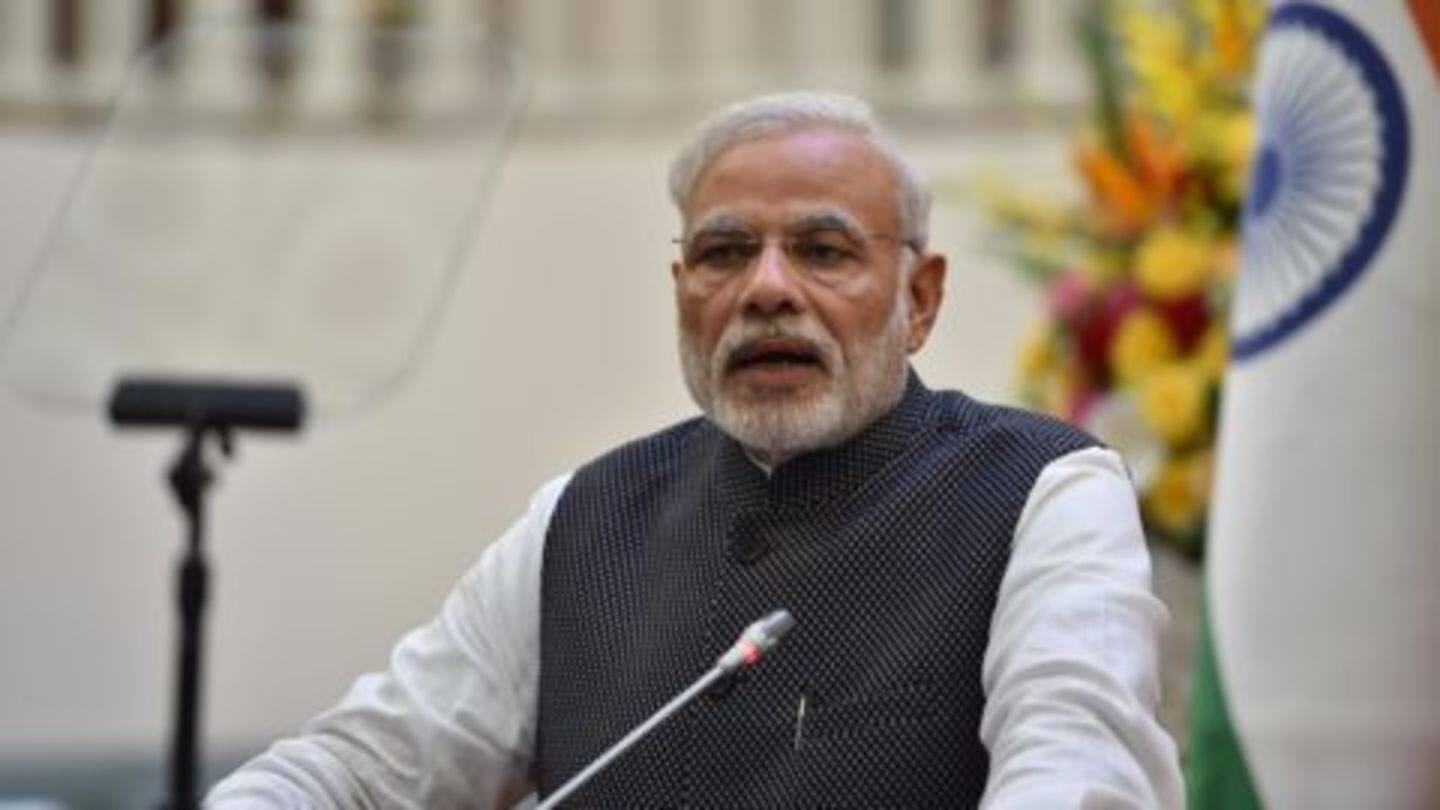
PM Modi's Vijaya Dashami celebrations after surgical strikes
What's the story
Prime Minister Narendra Modi highlighted Vijaya Dashami's celebrations on the backdrop of India's military surgical strikes across the LoC. Stating that a strong military force serves as an important part of a nation, Modi celebrated the festival that signals the victory of good over evil. The Prime Minister also released 15 books encompassing the life and leadership of the leader, Deendayal Upadhyay.
About
Deendayal Upadhyaya
Deendayal Upadhyaya, born in 1916, was one of India's biggest philosophers and economist, and a leader of the Jan Sangh party. The Jan Sangh party had later merged with other Indian parties to give birth to the Bharatiya Janata Party in 1980. After securing his passage into public services, he was highly regarded for working on transforming the political ideologies in the country.
18 Sep 2016
Uri terror attack
In the wee hours of 18 September 2016, four terrorists sneaked into the Indian Army's base camp at Uri, a small town in Jammu and Kashmir. The terrorists killed 19 soldiers, pitched to be one of the biggest terror attacks on security forces in recent history. After a six-hour long gunfight, all four terrorists were eliminated by the Army forces.
28 Sep 2016
India carries out surgical strikes across LoC
In a counter measure to the Uri attack, the Indian Army launched surgical strikes across the Line of Control (LoC). Targeting multiple terror outfits, the Indian military force destroyed four base camps belonging to Pakistani post late last month. These launch pads were located around 700 metres from the Line of Control. Reports stated that nearly 20 terrorists were killed during the strike.
Quote
Upadhyay's stance on having a strong military force
"He (Upadhyay) used to say that the country's armed forces should be very capable, then only the nation can be strong. In this time of competitiveness, the need is that the nation should be capable and strong", PM Modi said.
National development
Upadhyay's teachings
Upadhyay's philosophy circled around the development of a country, both in terms of security and welfare. He had stressed that a nation's pursuit for maintaining national security must be to defend itself itself, not defeat others. The books that were released covers some of the political battles and conflicts like the Indo-Pakistan war in 1965 and the Tashkent Agreement.